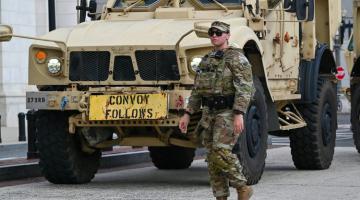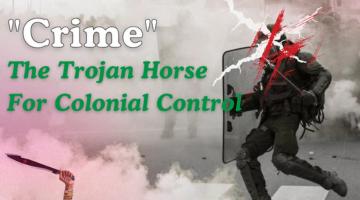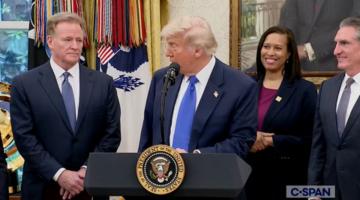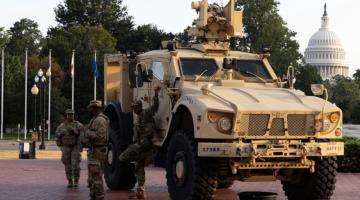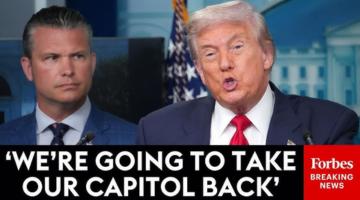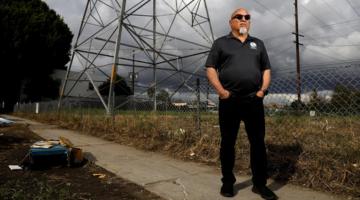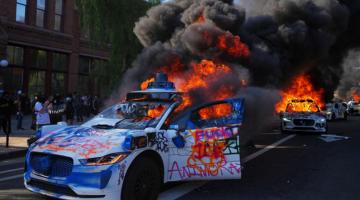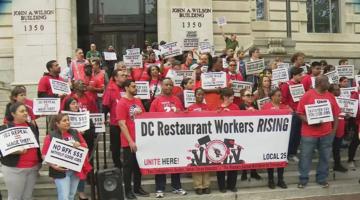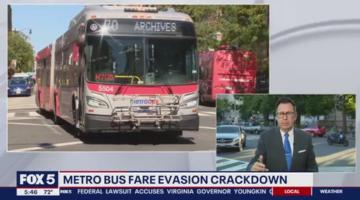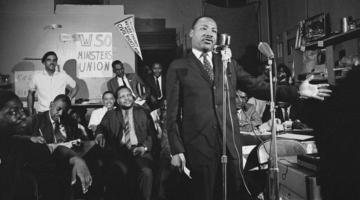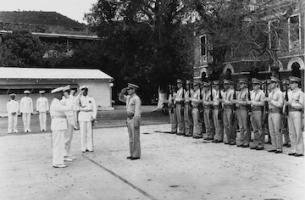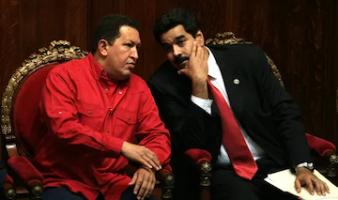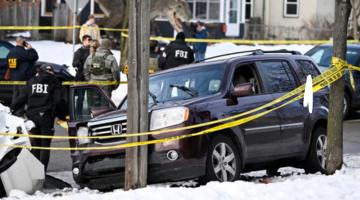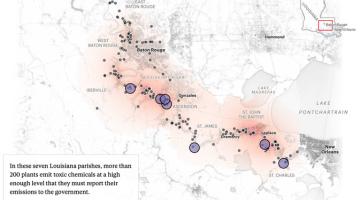The deployment of federal agents and National Guard troops to Washington, D.C. is a militarized occupation disguised as a public safety initiative. This move weaponizes the state's power to criminalize poverty and suppress dissent in the capital.
On August 11, 2025, Donald Trump escalated his threats to seize control of Washington, D.C., deploying up to 450 federal officers — including FBI agents in an unprecedented role patrolling alongside local police — and activating roughly 800 National Guard troops. Publicly framed as a crackdown on violent crime, this federal surge is, in reality, an occupation: a coordinated effort to intensify surveillance, criminalize poverty, and consolidate power in the nation’s capital.
Trump’s rhetoric is unambiguous. On social media, he declared that “the homeless have to move out, IMMEDIATELY” and promised to “put criminals in jail where they belong.” The language echoes past campaigns to “beautify” cities by forcibly removing the poor, making clear that this operation is not about safety — it’s about cleansing D.C. of those who do not fit the image of a compliant, profitable capital.
This move comes despite the fact that D.C.’s own Metropolitan Police Department reports overall crime rates are lower than last year, mirroring a nationwide decline. But truth is irrelevant to a political project that thrives on fear. By manufacturing a crisis, the administration creates the pretext for deploying military and paramilitary forces against the city’s most vulnerable residents.
Surveillance and the Militarization of Public Space
The details of this operation reveal its true character. As many as 130 FBI agents are assigned to “drive around the city, running license plates for stolen vehicles and warrants”, a policing tactic that invites profiling, harassment, and indiscriminate sweeps. National Guard troops will augment this show of force, turning public space into a theater of occupation. This is not law enforcement as conventionally understood. It is counterinsurgency — a strategy used historically against colonized peoples, now aimed at Black working class residents of D.C. The target is not just “crime” but the existence of communities that live outside the control of the state and its corporate partners. The aim is to suppress any form of autonomy that does not serve the interests of the ruling class.
Poverty as Criminality
Trump’s takeover crystallizes a broader policy trend: treating poverty itself as a crime. Those without housing are to be displaced, “far from the Capital.” Those without stable income are subject to fines, arrests, and incarceration. In this logic, survival is grounds for state punishment. This is not the failure of the system, it is the system functioning exactly as designed.
The bipartisan consensus on policing, displacement, and austerity leaves no meaningful opposition within official politics. The result is a city where the poorest residents, particularly the Black working class in Southeast D.C. are under siege, whether the armed patrol wears a federal or local badge.
Local Collaboration and the Politics of Capitulation
Rather than resist, much of D.C.’s political leadership has met this escalation with deference. Since she took office, Mayor Muriel Bowser has publicly emphasized “shared priorities” with Trump and intends to cooperate with federal law enforcement... The city’s Democratic establishment appears less concerned with defending the people than with maintaining institutional relationships and protecting federal funding streams.This is not surprising. Just last year the city passed the D.C. Secure Omnibus Crime Bill, an attempt by DC’s local government to impose law and order, while ignoring the root issues that lead to street-level crime and advancing the war against the Black working class. The local government has long embraced repressive measures — from expanding pretrial detention to clearing encampments — that align with federal objectives. What Trump now executes with overt militarism, the D.C. administration has pursued more quietly under the guise of public order.The truth is that both liberal and conservative governance in D.C. operate from the same premise: Black poverty is a problem to be managed, not a condition to be eliminated through redistribution, housing, and self-determined community power.
Community Power: Beyond Federal vs. Local Control
The debate over federal takeover versus local government control is a distraction. In practice, both levels of this state have committed to deepening policing, expanding surveillance, and protecting the interests of capital over the needs of the people. The difference lies in style, not substance.
A revolutionary response must reject both options. It must center the autonomous self-organization of the working class: building survival programs that meet basic needs without state mediation; creating community defense structures to resist displacement and police violence; and cultivating political education that exposes how crime narratives are weaponized to justify colonial control.
The federal occupation of D.C. is the logical endpoint of a political system that prioritizes property over people and repression over community safety. Whether under Trump’s open aggression or Bowser’s cooperative repression, liberation will not come from those who rule. It will come through organized resistance and a people’s movement for power.
Pan African Community Action makes the following demands
- The DC City Council and Mayor Bowser should stand with their constituencies by ordering all DC agencies to refuse to cooperate or comply with a federal takeover.
- Hands off homeless encampments and reallocate the new Stadium funding to housing, healthcare, and community services.
- Police Hands Off DC Black Youth
- Community Control Over Public Safety!
- ICE out of DC. Unwavering sanctuary for the migrant diaspora!

